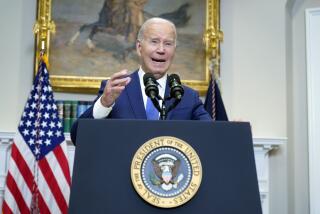U.S. signals it will proceed with proposed rule aimed at curbing China tech threats
The U.S. signaled it currently intends to go ahead with a Trump-administration-proposed rule to secure the information-technology supply chain next month, a move that gives the Department of Commerce broad authority to prohibit transactions involving “foreign adversaries.”
The interim rule, which will allow Commerce to monitor transactions of governments, including China’s, was first proposed by the previous administration in January — days before Joe Biden’s inauguration — and follows an executive order that then-President Trump signed in 2019. The department said Friday it’s accepting public comments on the plan through March 22, the same day it becomes effective. A final rule that would implement the measure may be issued at some future date that’s not yet been determined, a Commerce spokesperson said.
Former Commerce Secretary Wilbur Ross, in the interim, listed the governments of China, Russia, Iran, North Korea and Cuba as adversaries.
The rule is “intended to prevent foreign adversaries from exploiting vulnerabilities” in the information and communications technology-services supply chain, Commerce said in an emailed statement Friday. “Trustworthy information and communications technology and services are essential to our national and economic security and remains a top priority for the Biden-Harris administration.”
Technology companies, including IBM, say the rule, if implemented in its current form, would damage the economy.
“By the Commerce Department’s own estimate, this rule would impose many billions of dollars in new compliance costs on millions of U.S. firms, including countless small businesses,” IBM Regulatory Affairs Vice President Christopher Padilla said. “Such a massive, overbroad, and economically damaging Trump-administration rule should not be on autopilot.”
There is widespread concern in the business community about the breadth of the rule and the precedent it would set in giving the agency blanket authority to interfere in transactions.
Earlier this month, the biggest trade associations, including the U.S. Chamber of Commerce, warned the Biden administration of the negative impact the rule could have on the economy and asked it to halt its implementation.
“The net impact of these negative consequences could undermine the much-needed economic recovery from the pandemic that is a priority of the administration and a central feature of the Biden-Harris American rescue plan,” the groups wrote in a Feb. 4 letter.
Bloomberg writer Eric Martin contributed to this report.





